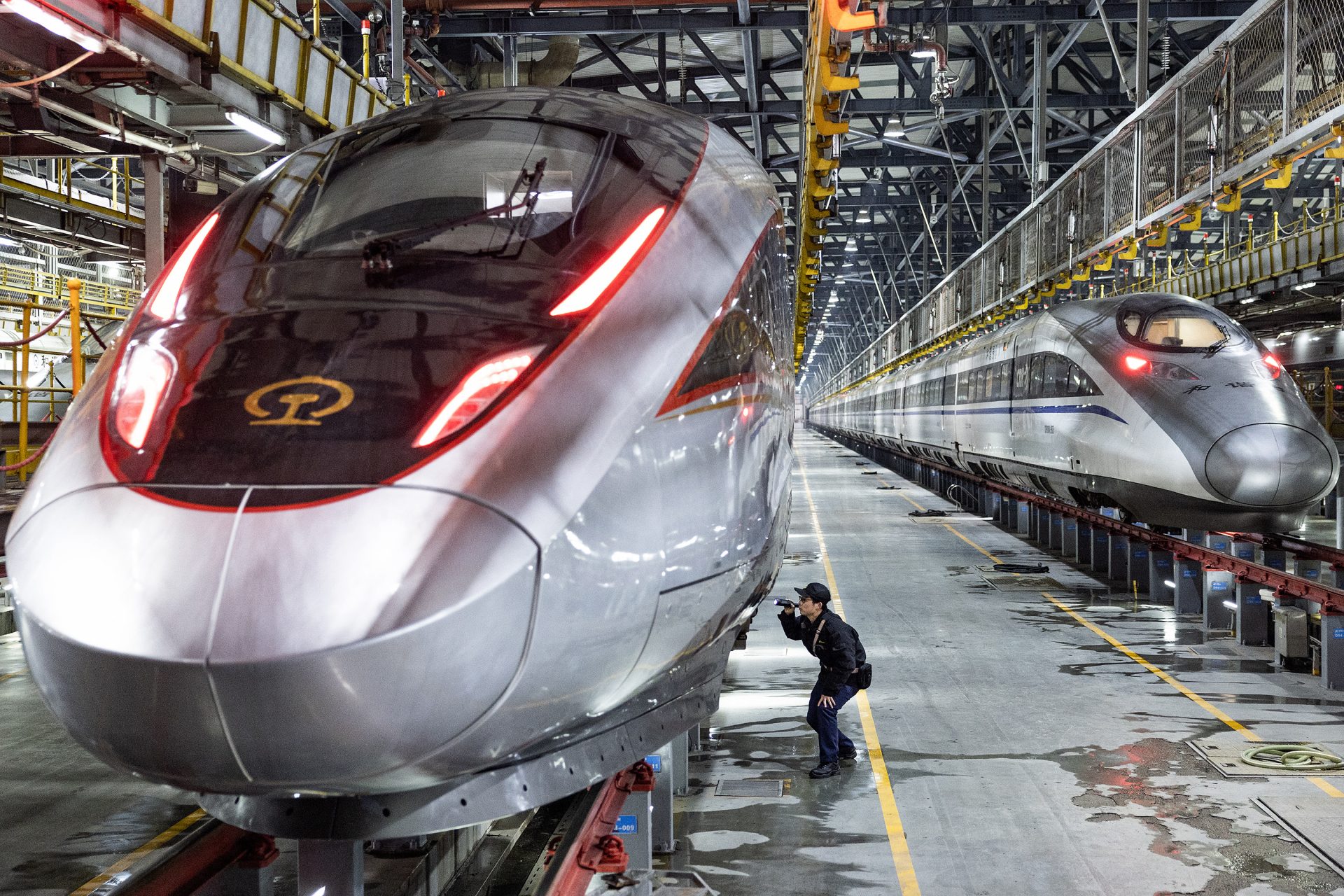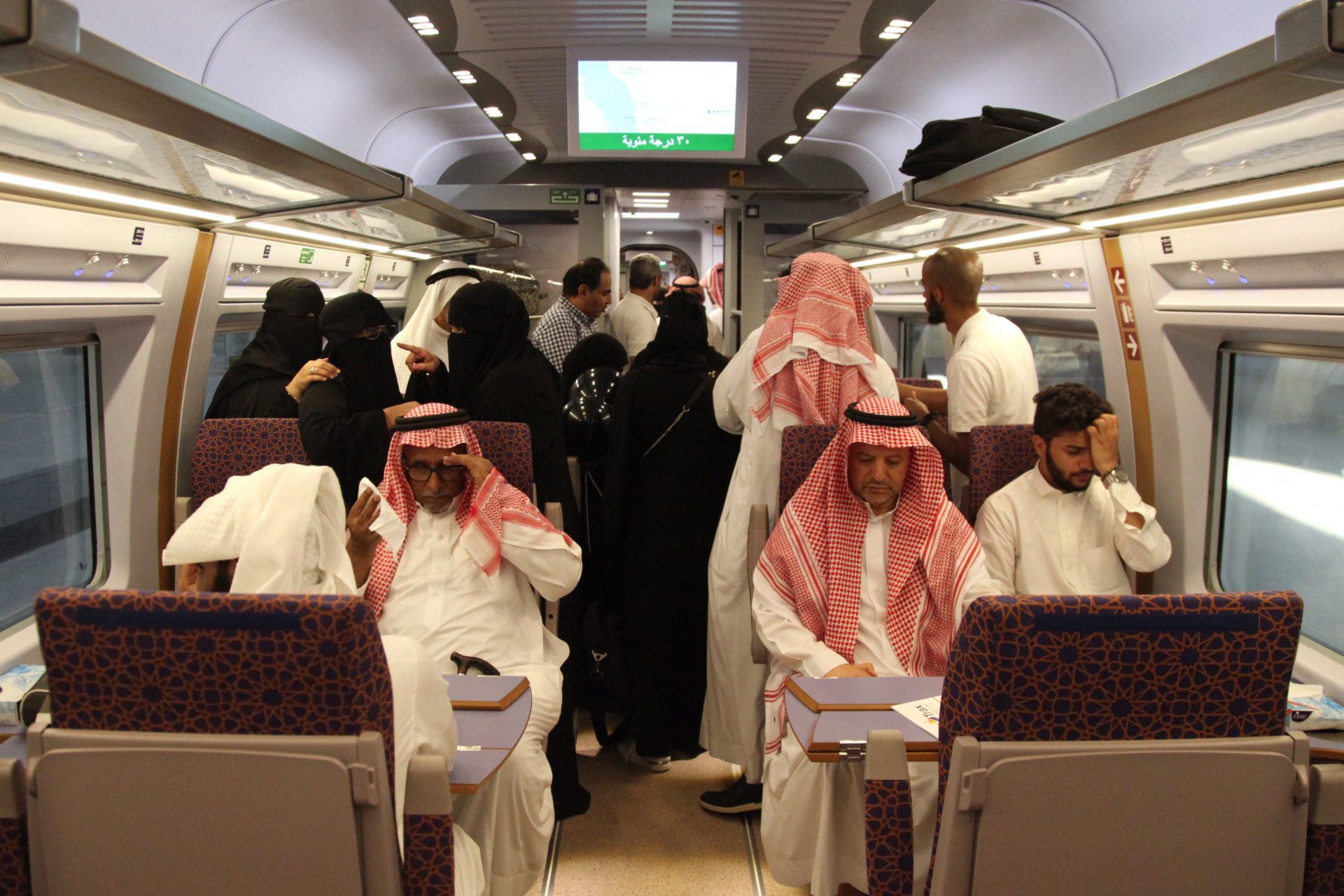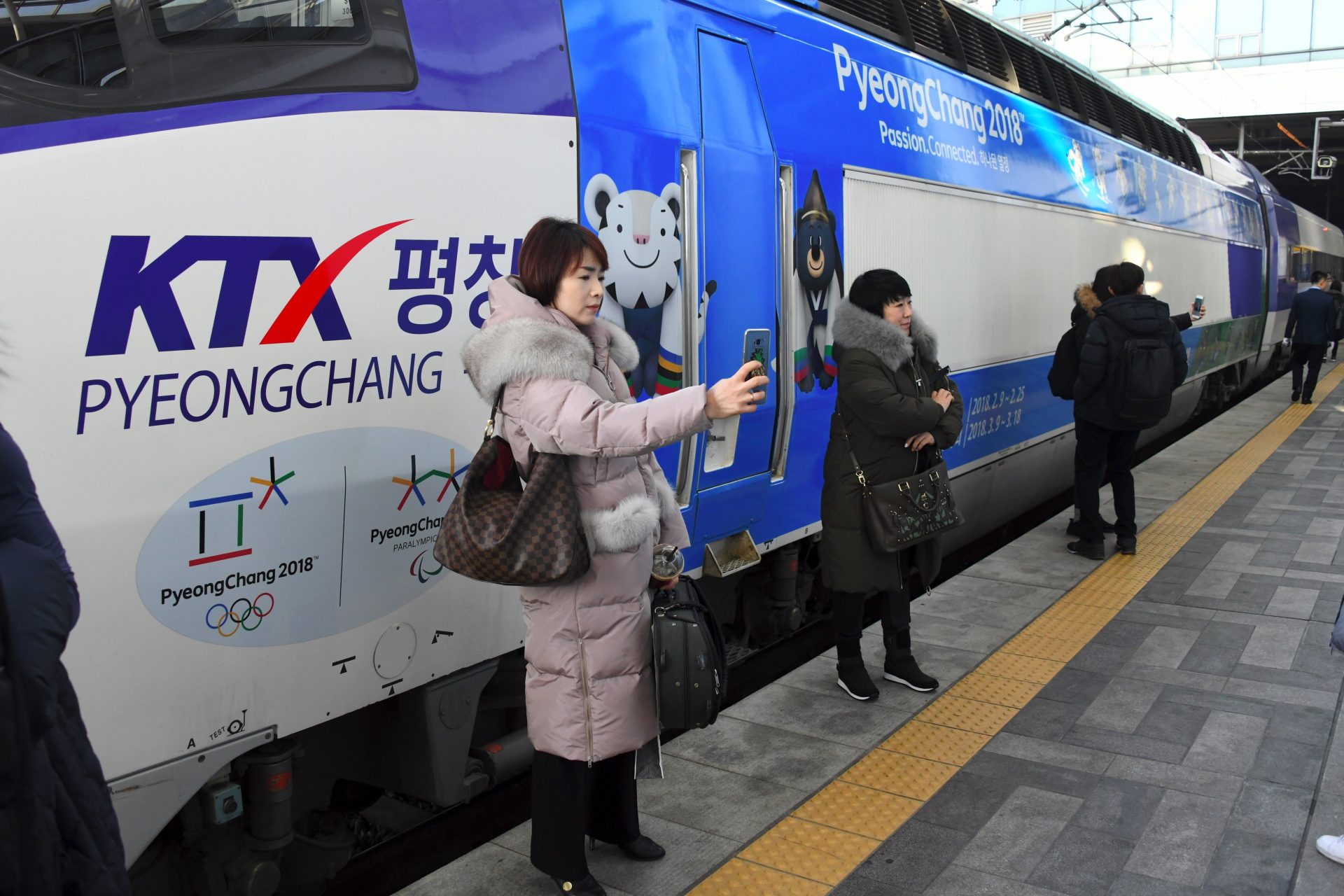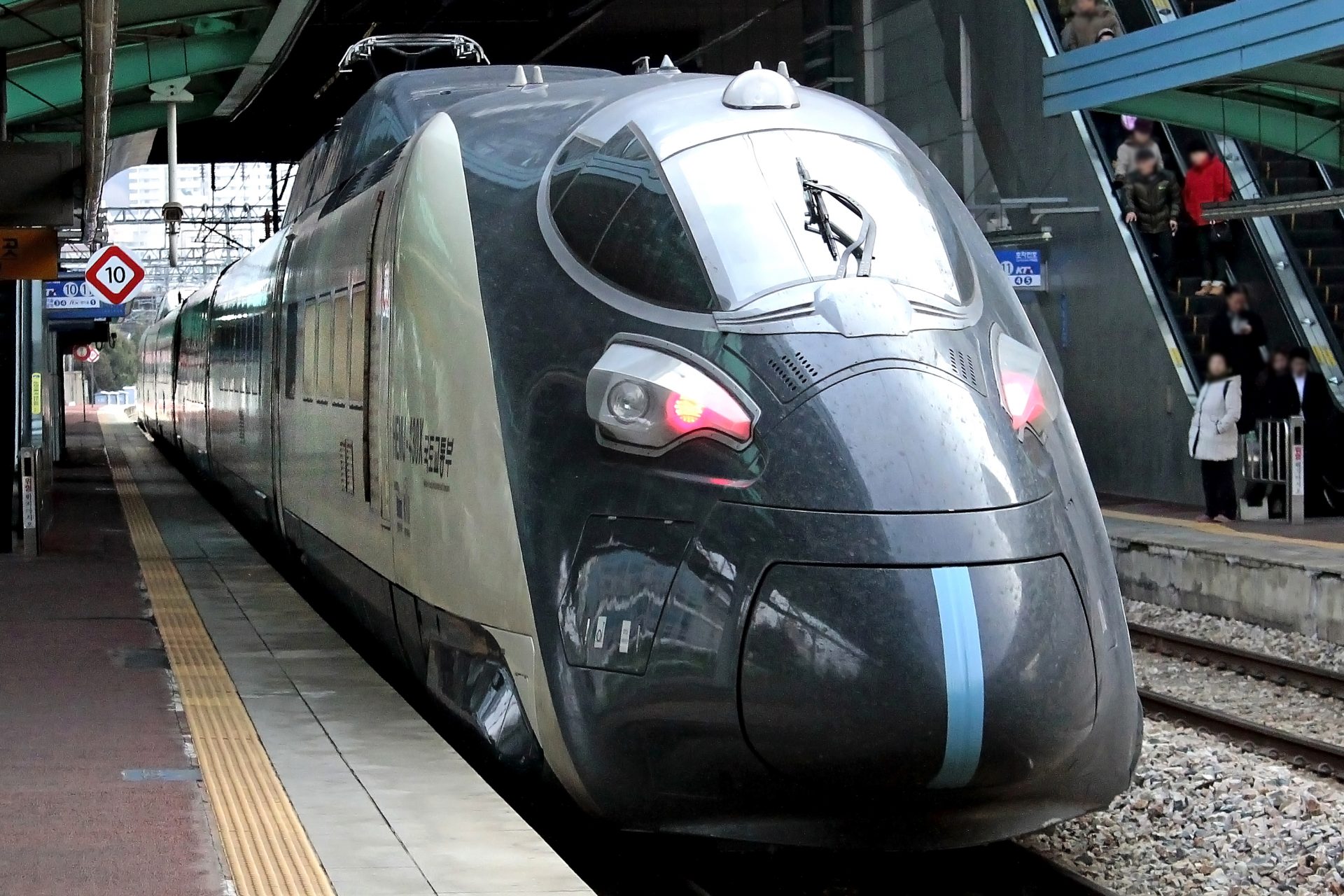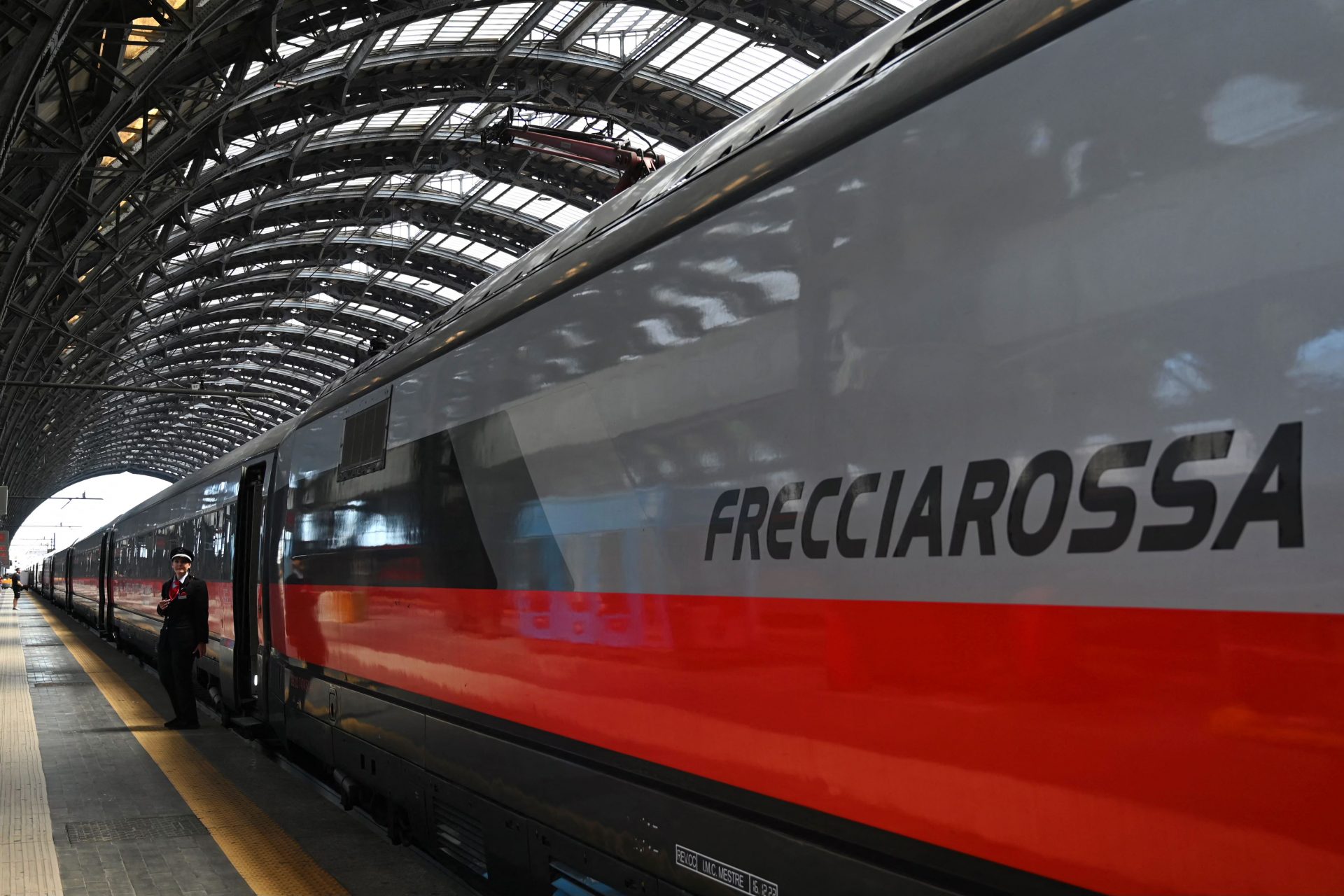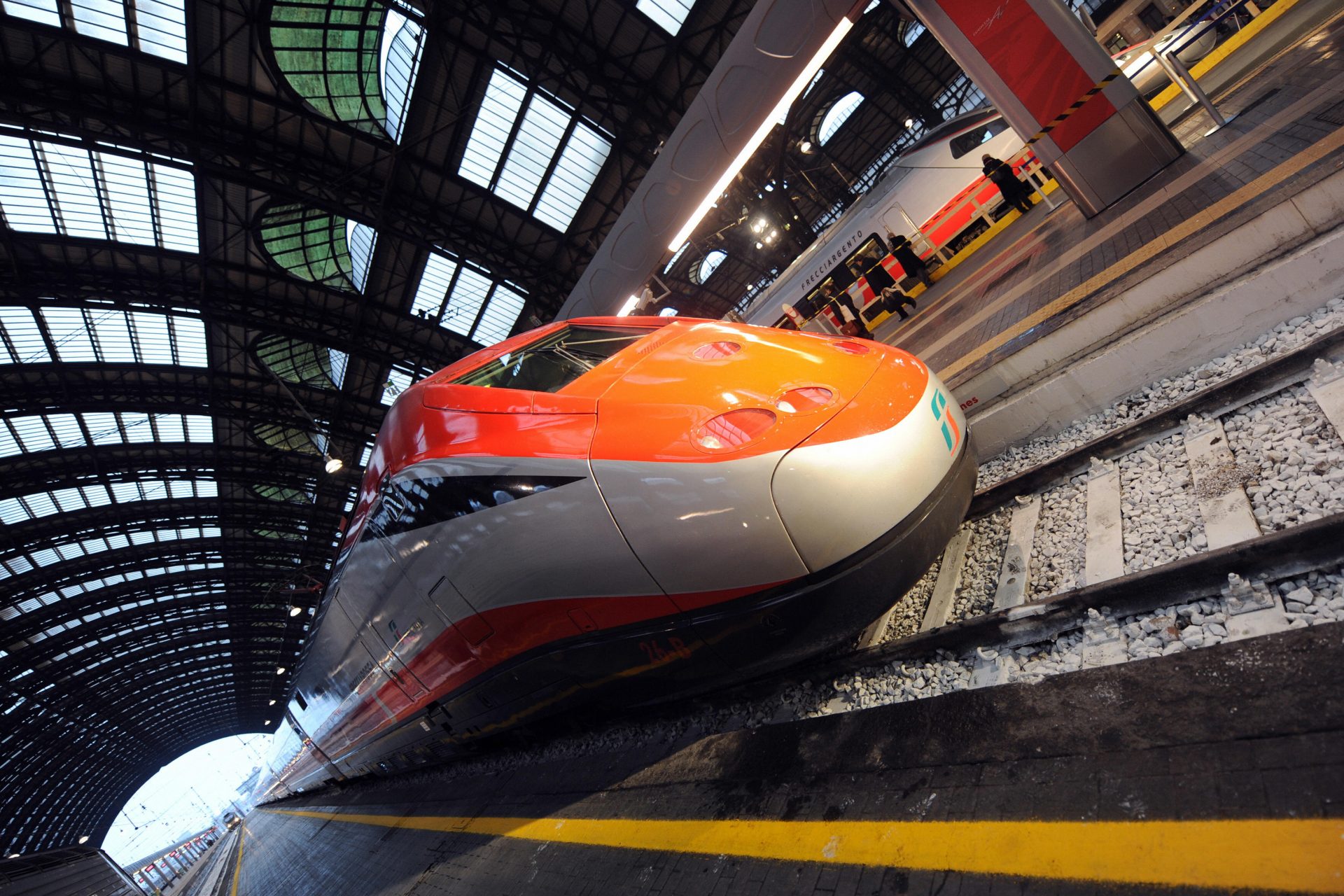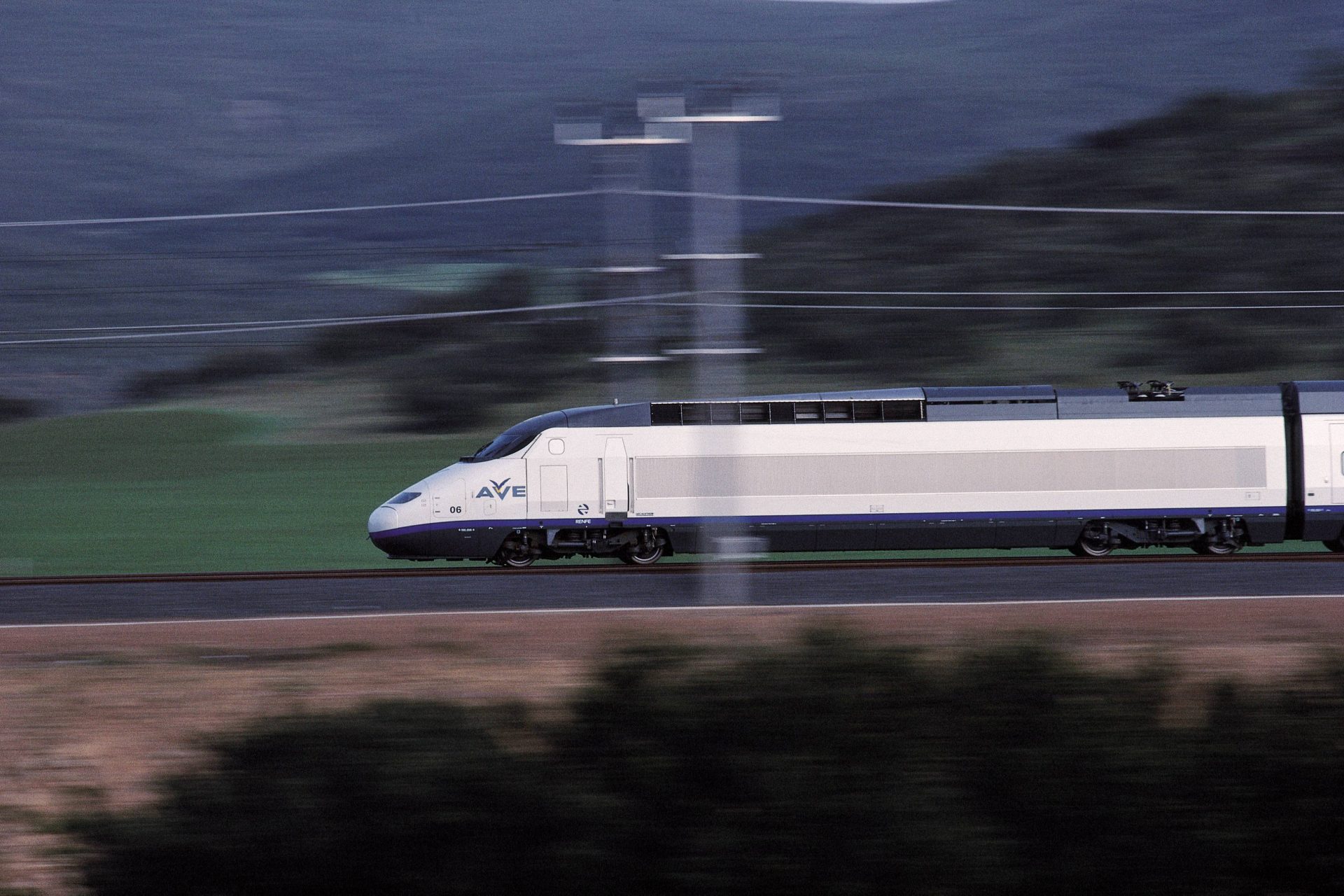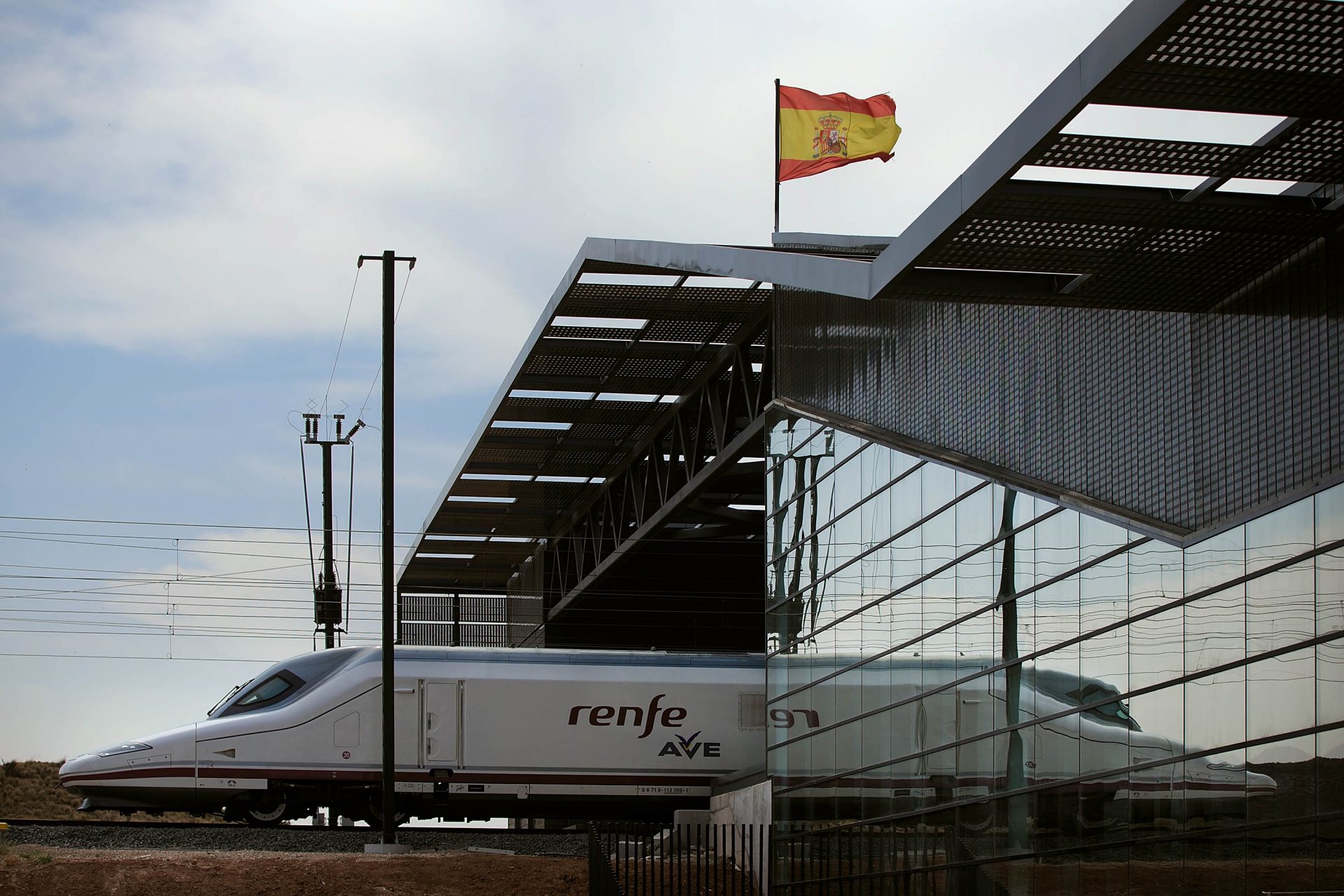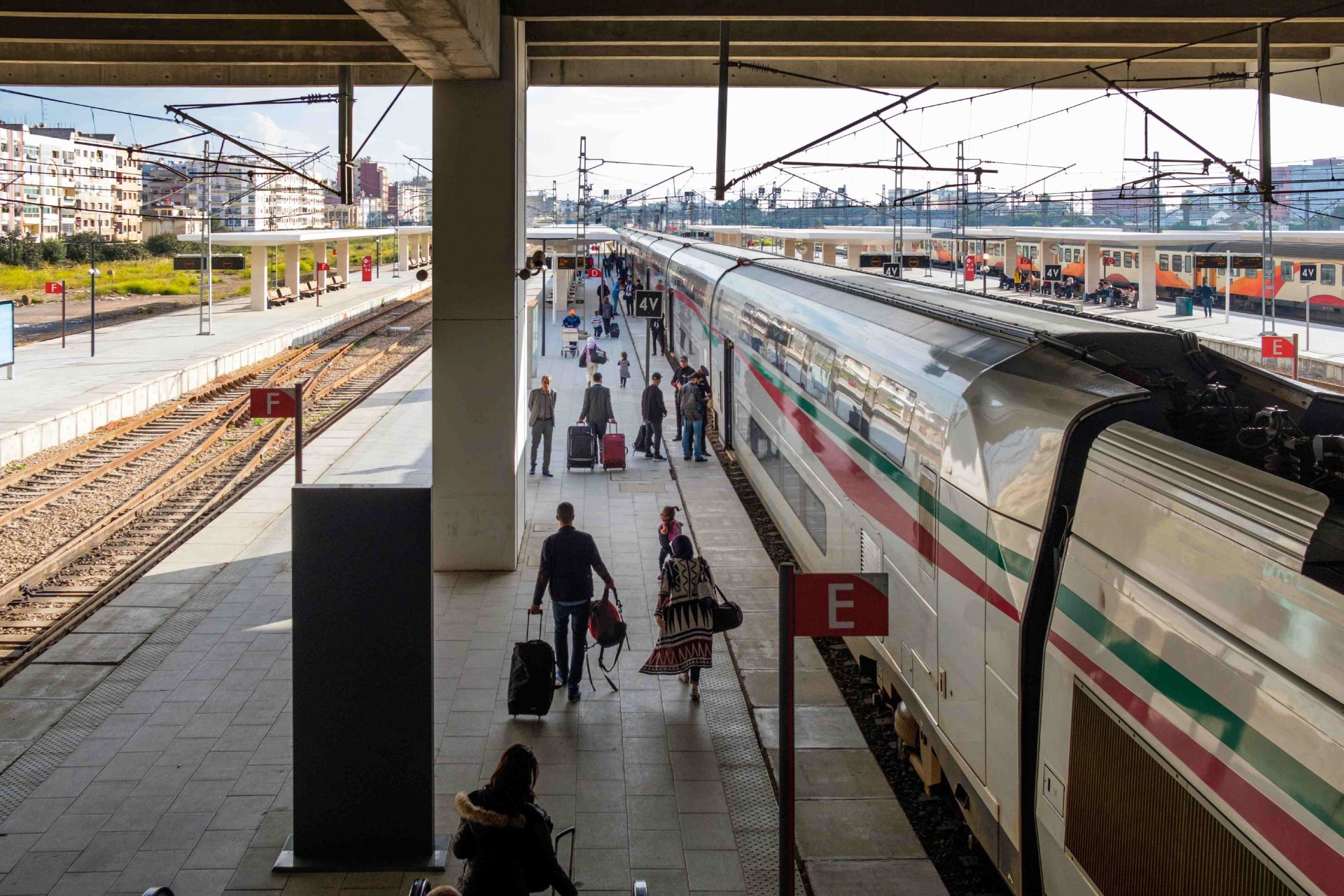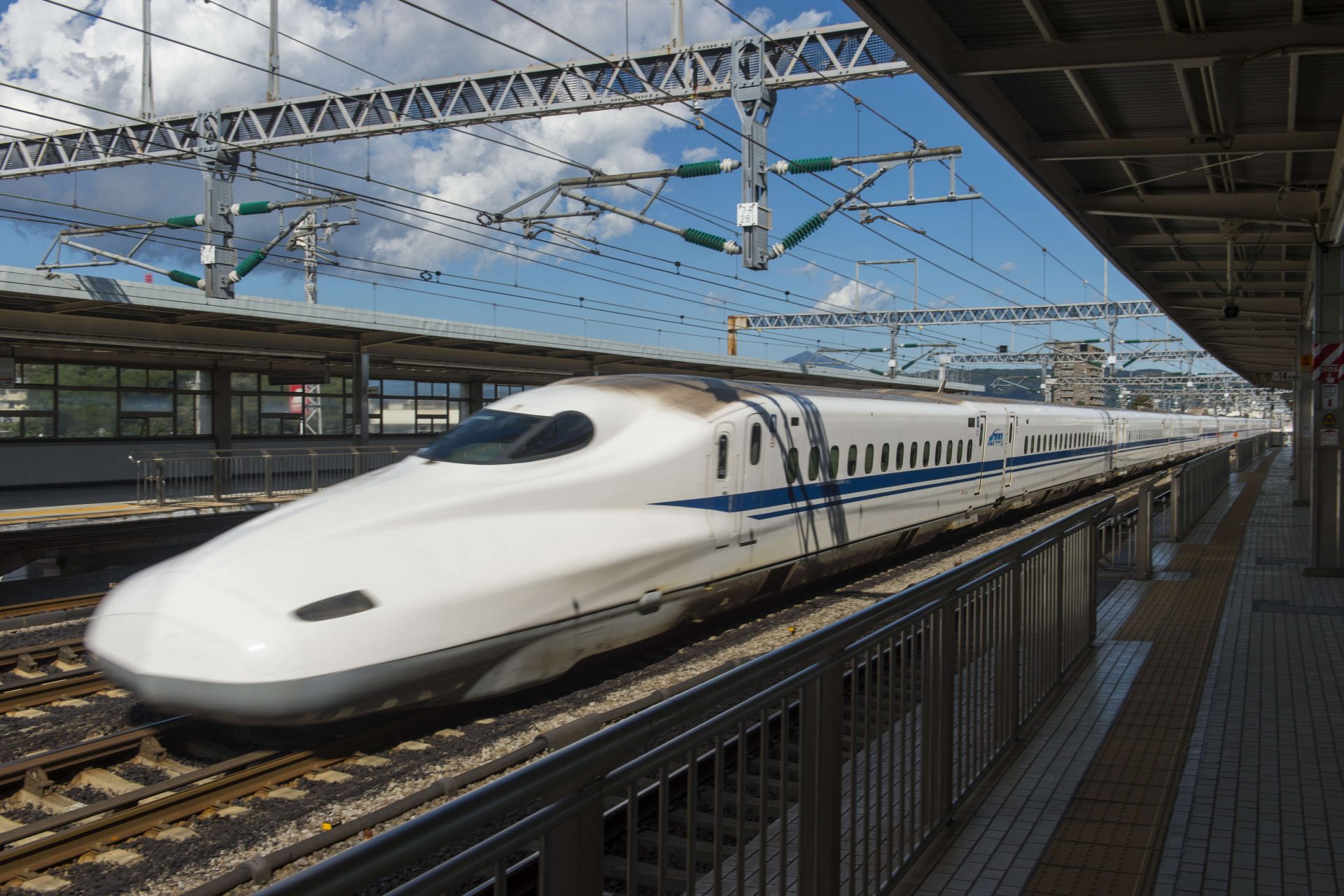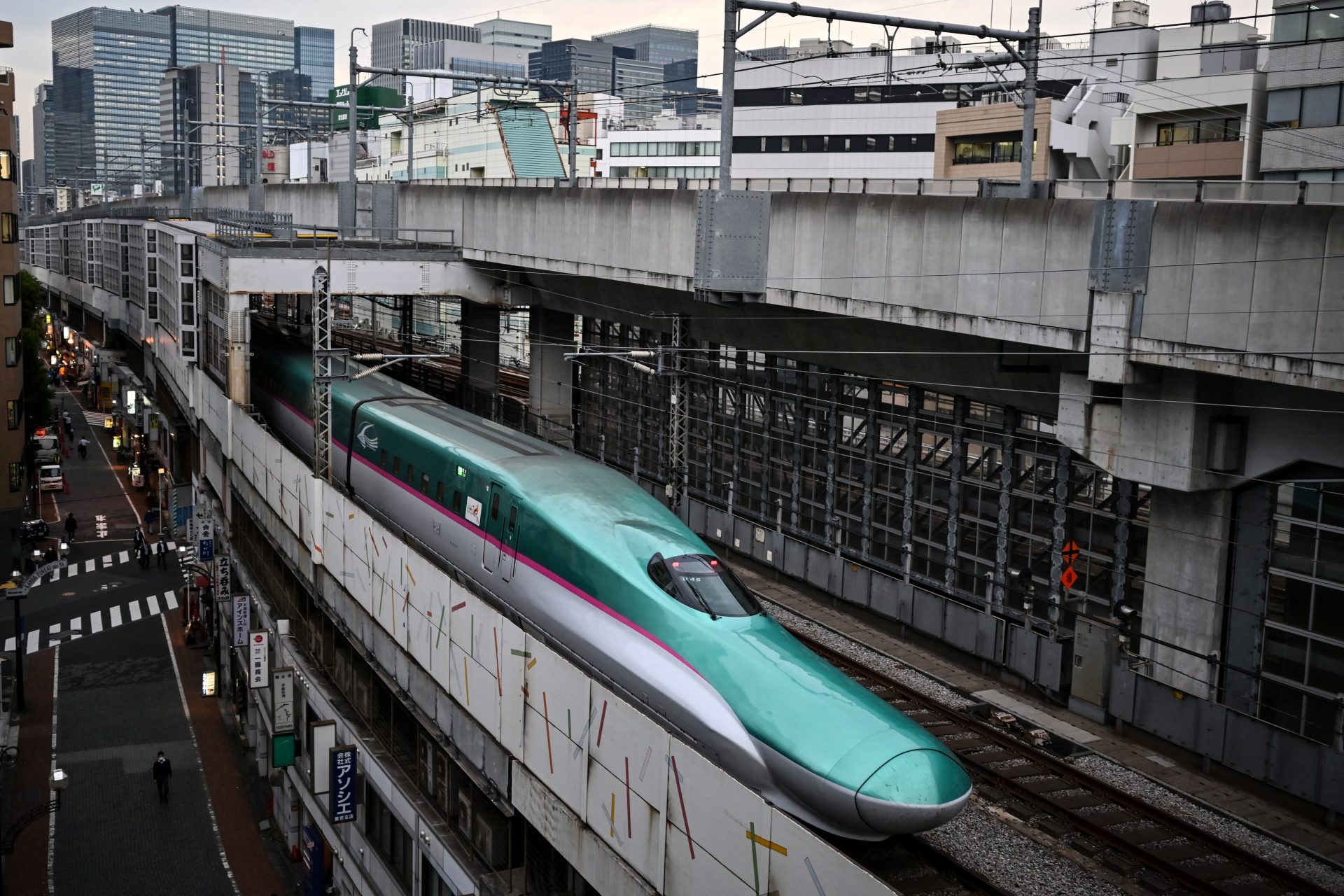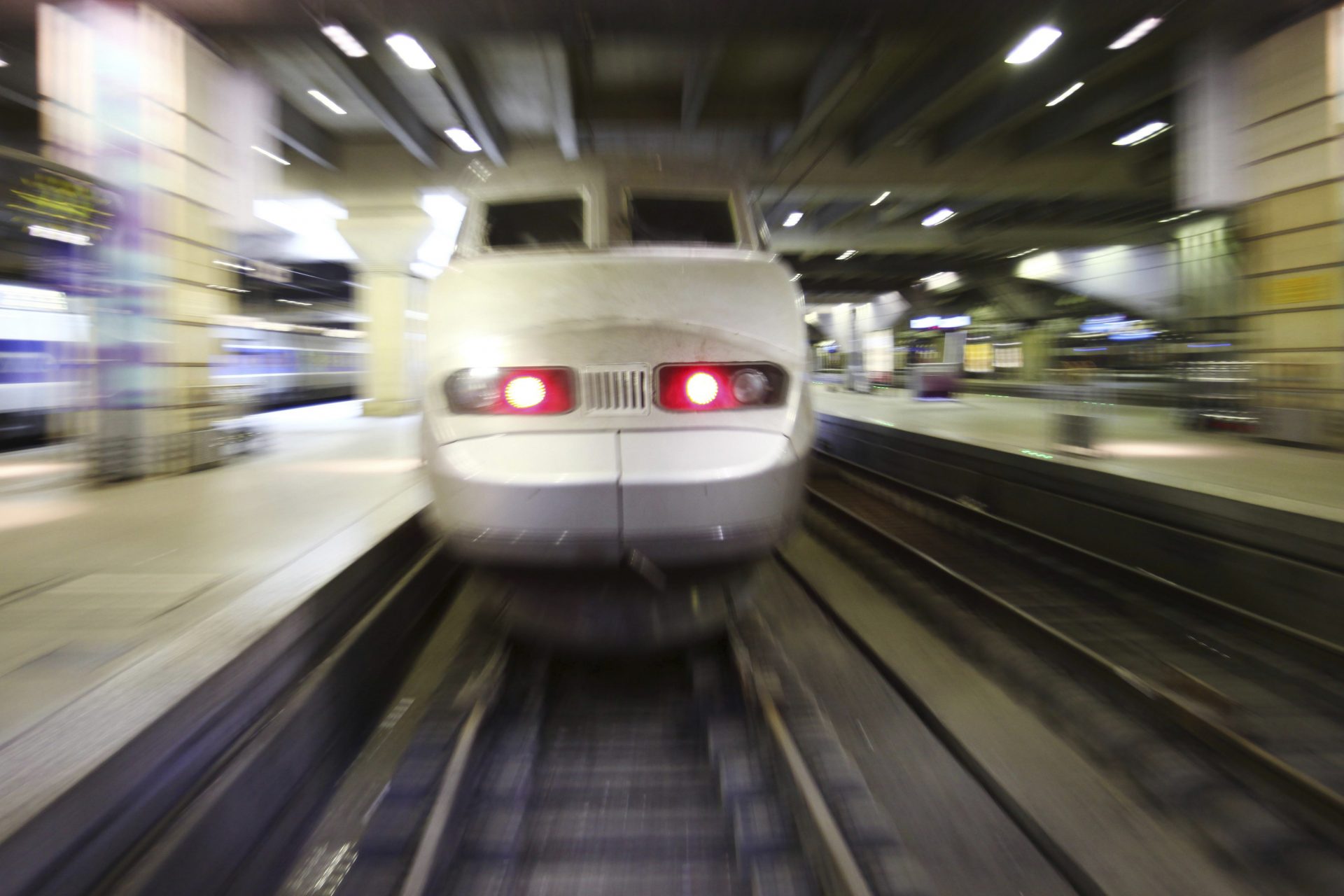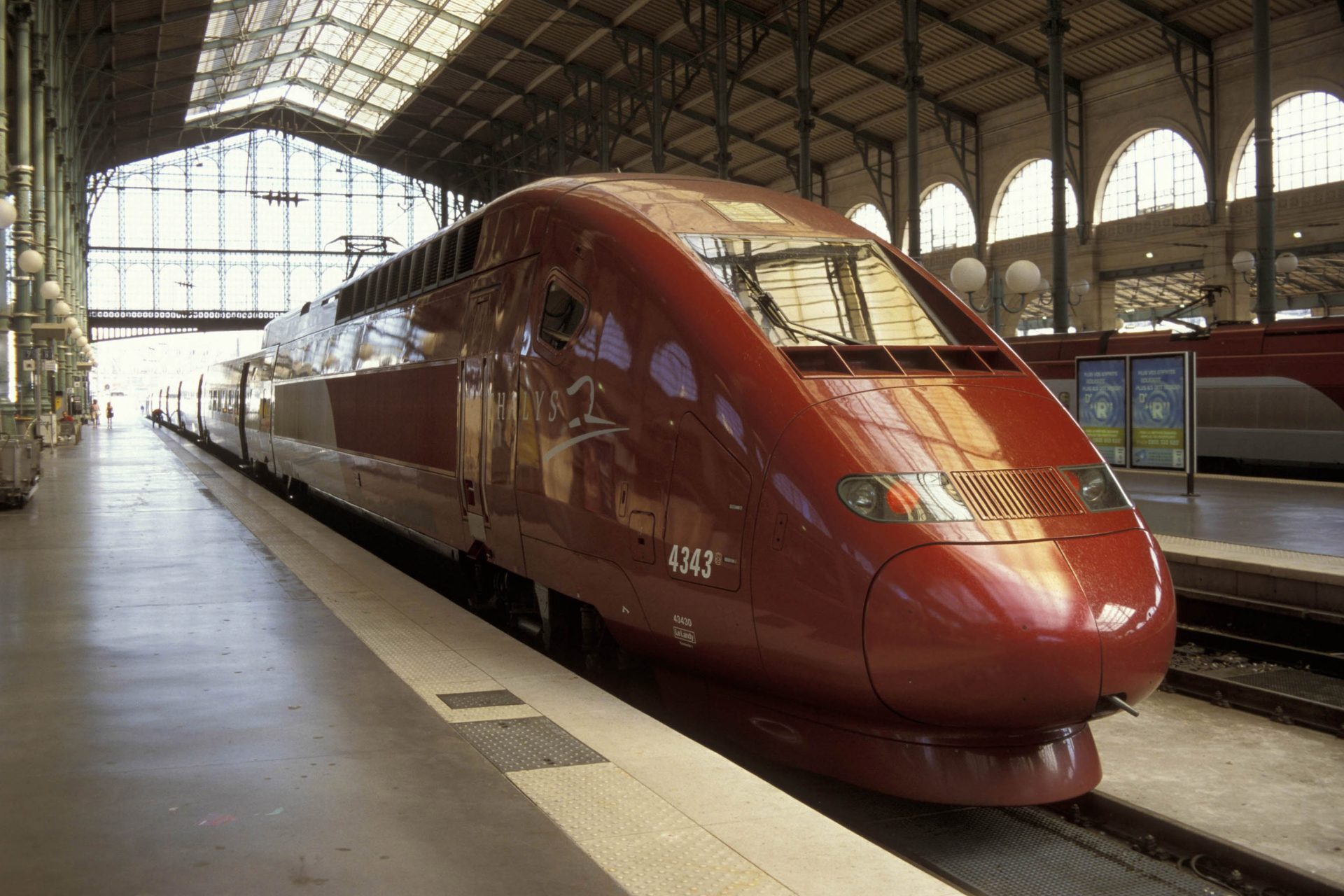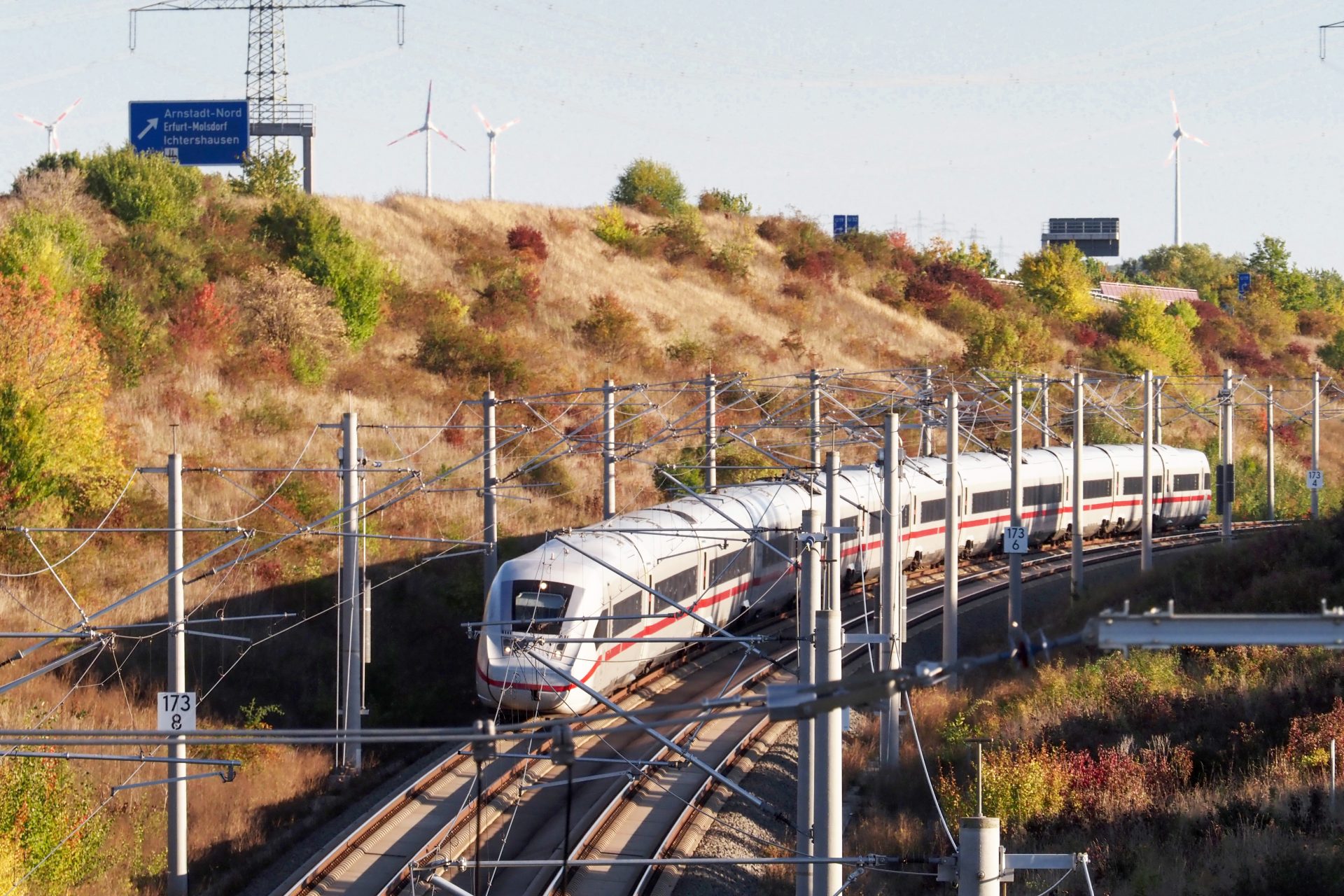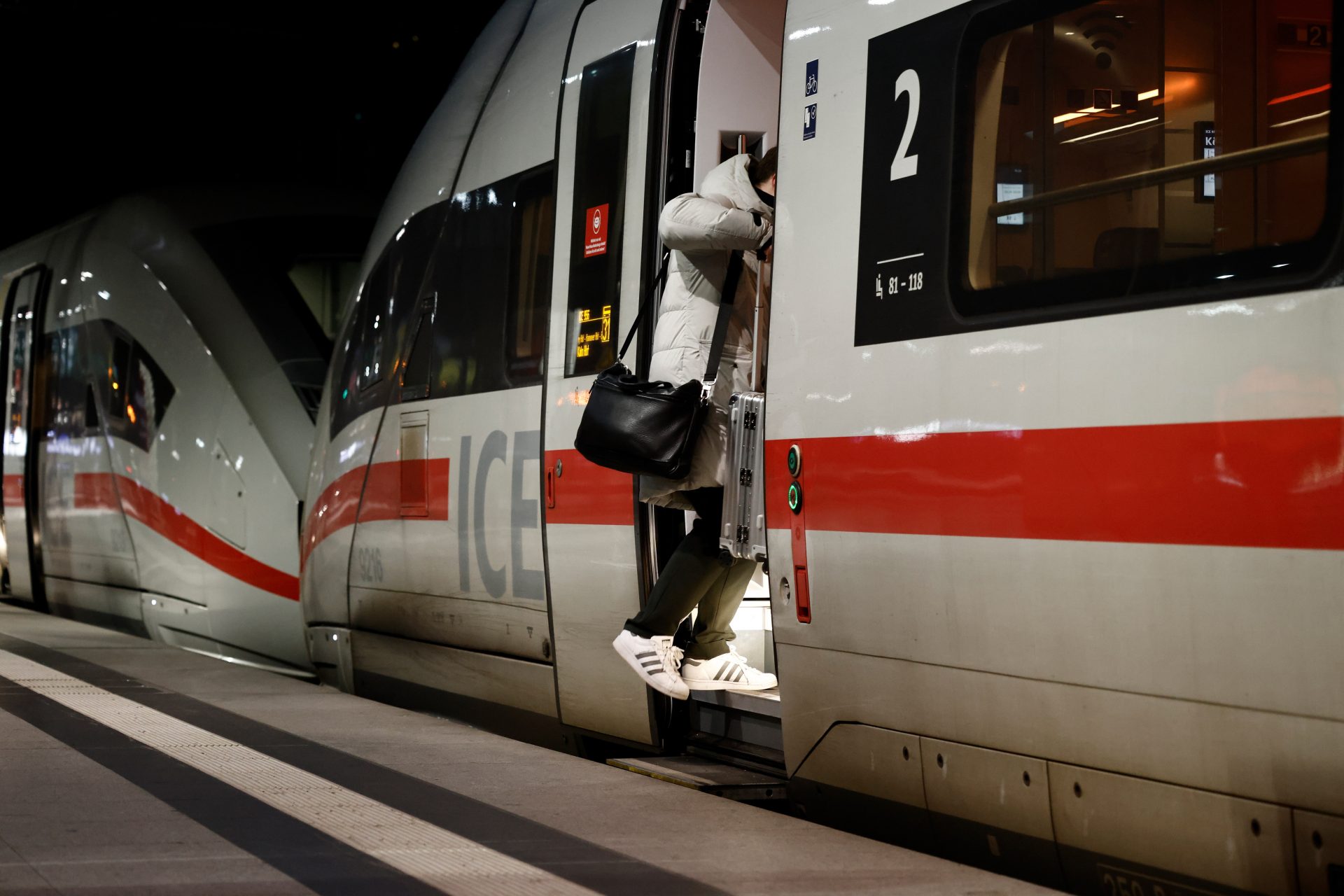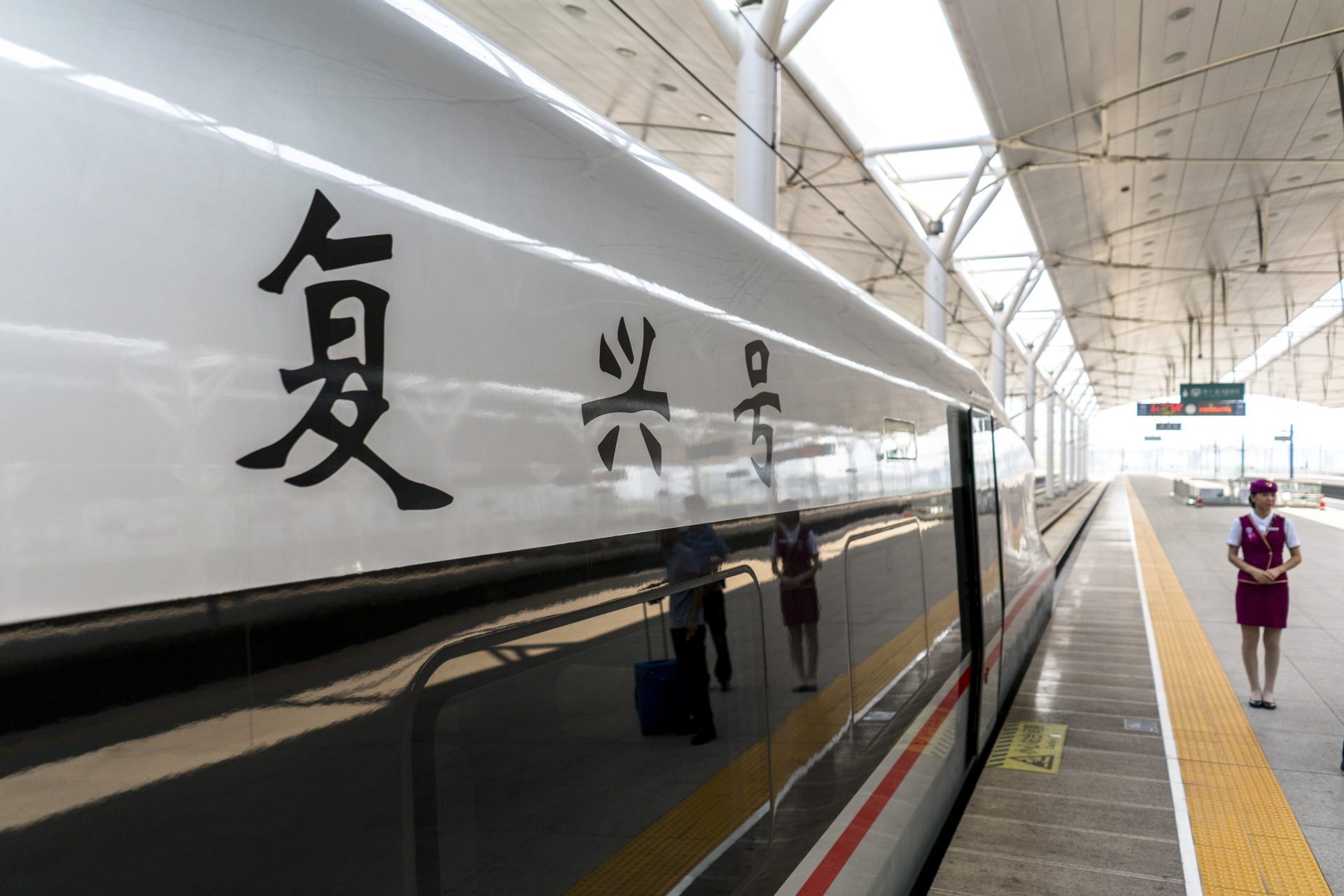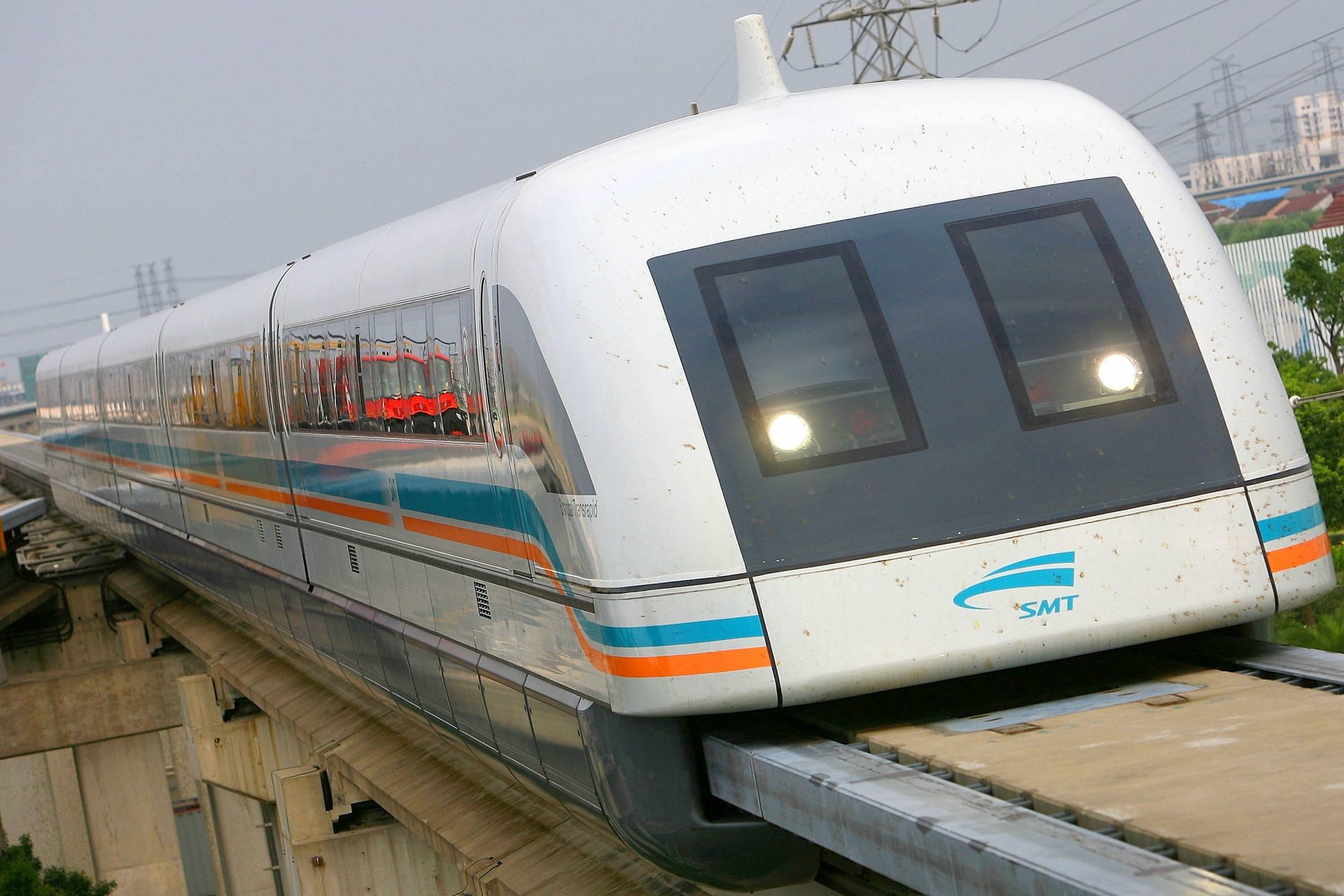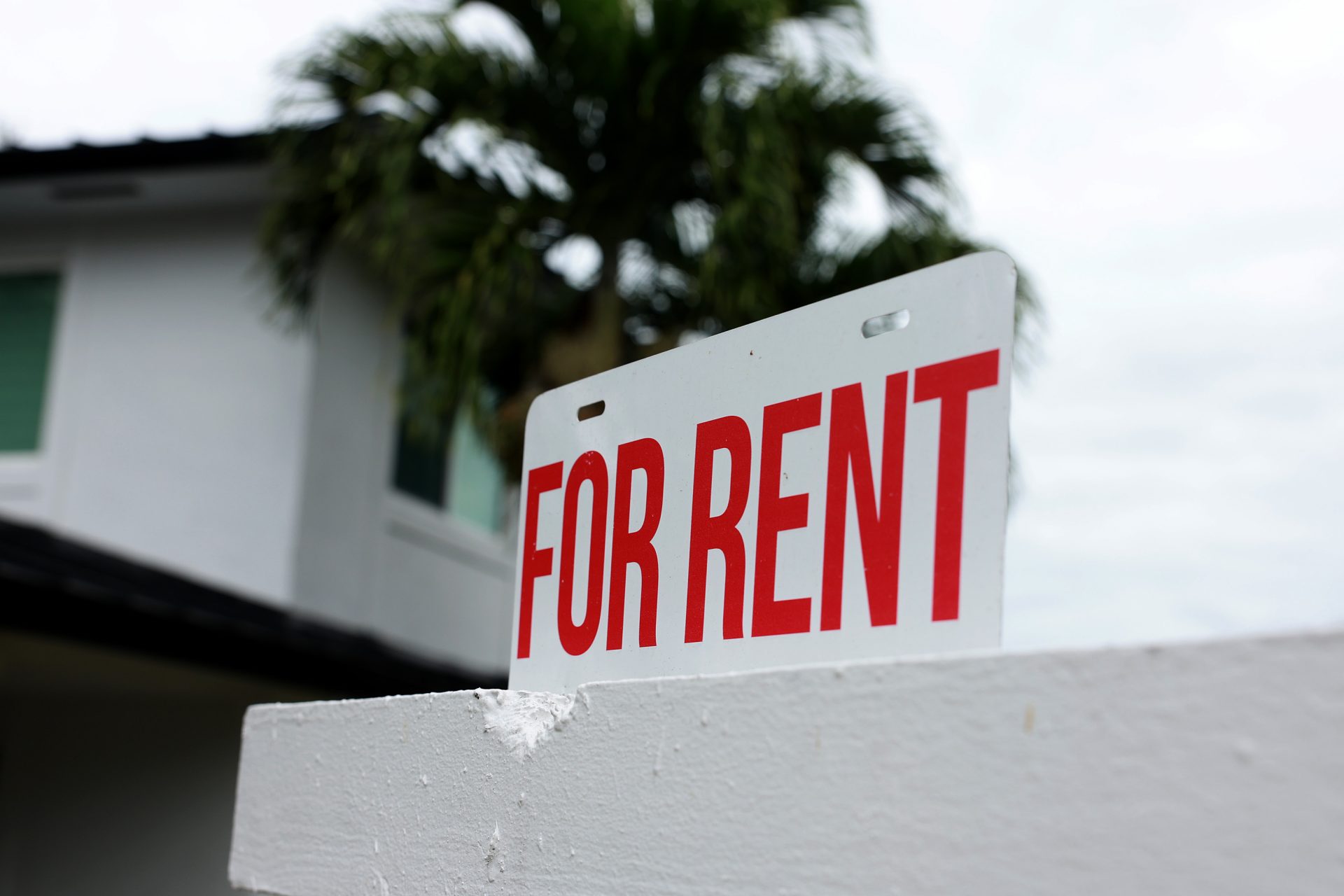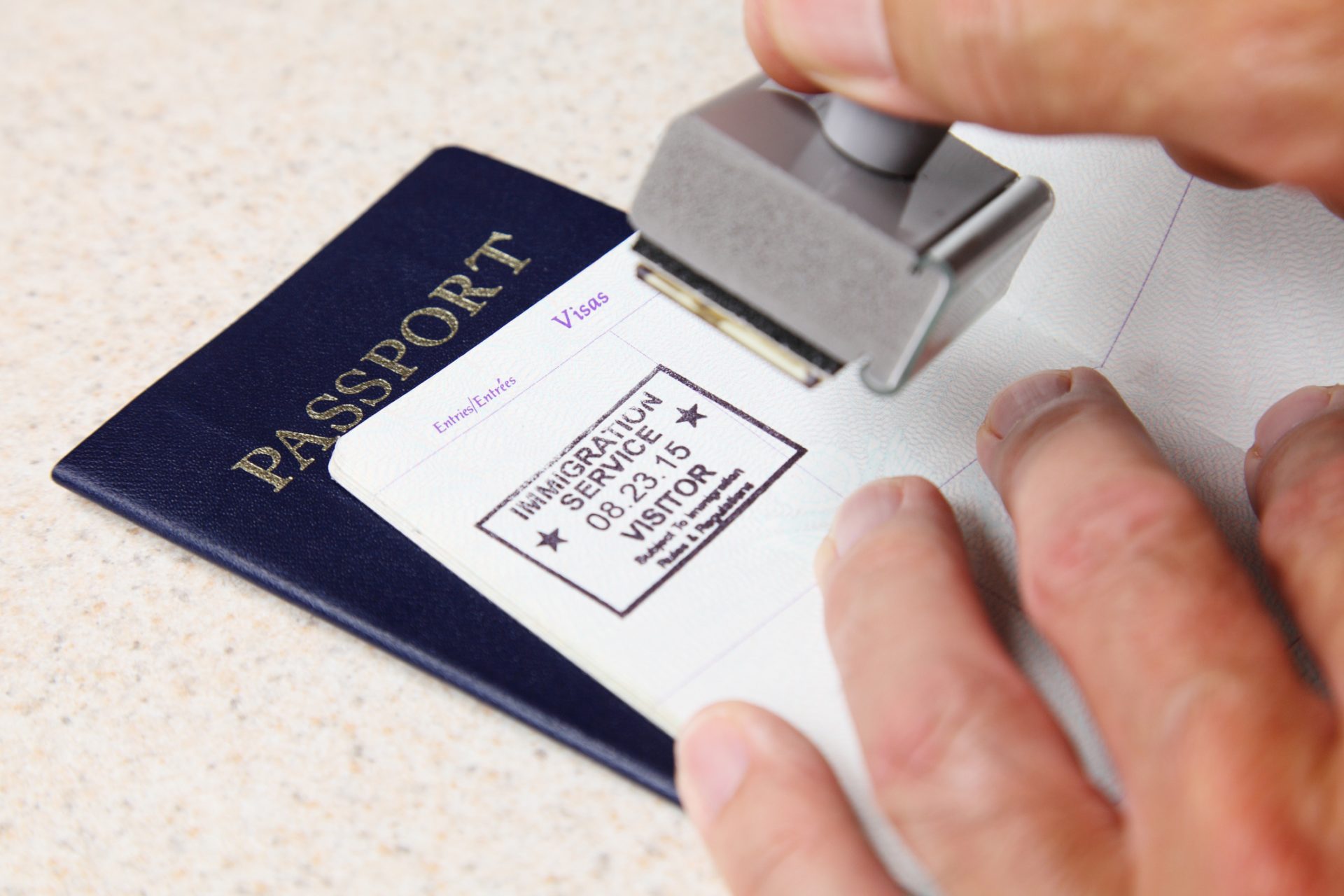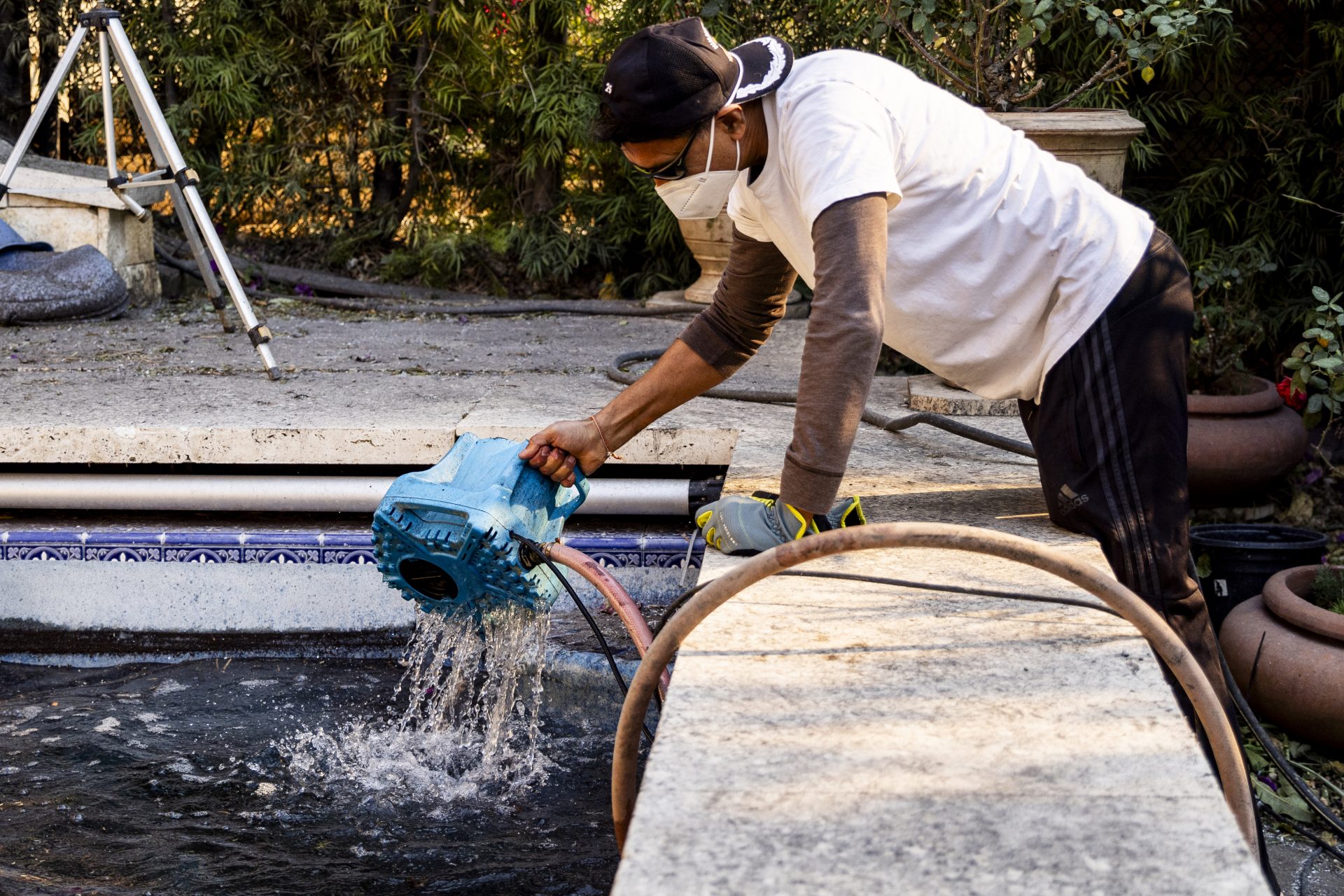These 10 trains are the fastest in the world
In addition, travelling by train is one of the greener ways to get around and also saves you the inconvenience of having to go to the airport and deal with long security lines. Join us as we take a look at the top ten fastest trains in the world.
When you think of Saudi Arabia, you may not immediately think of high-speed trains, but the Haramain High-Speed Railway (HHR) is the fastest way to travel between Mecca and Medina.
The trains on the HHR reach top speeds of 300 km per hour (186 mph), making the journey between the two cities a speedy one that can be completed in just two hours, whereas by road, the trip can take 10 hours.
The country imported Spanish-built Talgo trains but modified them for the harsh desert conditions, allowing them to function in extreme temperatures of up to 50ºC (122ºF).
The trains can hold up to 417 passengers, which makes the train particularly useful during Hajj when over two million people flock to the city's holy sites.
In 2004 South Korea made expanding its network of high-speed trains a priority, and with the help of the French TGV technology, it now has an impressive network of high-speed railways.
The KTX-I trains makes the journey from Seoul-Busan a speedy one, reaching speeds of up to 305 km per hour (190mph) means that travellers can now make the journey in half the time - a four-hour trip now takes a bit over two hours.
However, South Korea has continued to develop high-speed railway technology, and it is now in the exclusive club with France, Japan, and China, as proud owners of trains that can run at speeds over 420 km per hour (260.4mph).
The new HEMU-430X prototype reached the mind-blowing seed of 421.4 km per hour in 2013.
Photo: By This photo was taken with Canon EOS 550D - Own work, CC BY-SA 4.0,Wikimedia Commons
Italian State Railways' Frecciarossa, or the "Red Arrow" in English, are a series of high-speed trains introduced in 2017.
The Red Arrow trains can reach the impressive maximum speed of 400 km per hour (250mph) and boast 10,000 horsepower in output.
However, the top speed with passengers on board is 360 km per hour (223.6mph), although, for commercial schedules, the trains are only allowed to run up to 300 km per hour (186mph).
Red Arrow offers trips throughout Italy, making travel between major cities far quicker.
France helped Spain to join the ranks of countries offering transportation in high-speed trains in 1992 with its TGV technology.
Spain is now owner of the most extended network of long-distance lines in Europe, with dedicated high-speed trains travelling from Madrid to Seville, Malaga, Valencia, Galicia and Barcelona.
The AVE (Alta Velocidad España) operates at a commercial speed of 310 km per hour (193 mph) and has made commuting between Barcelona and Madrid much easier.
However, the fastest high-speed trains in Spain are the S-102 Talgo and S-103 "Velaro" trains. The S-103 reaches a maximum speed of 350 km per hour (217mph), and in July of 2006, it set a world record for an unmodified commercial passenger train when it reached the impressive speed of 404 km per hour (251mph).
Morocco is proud to have Africa's first and only high-speed railway: Al Boraq. The trains link Tangier with Casablanca and can reach the impressive speed of 320 km per hour (198.5 mph).
The trains are built in France using the same technology as France's TGV Euroduplex double-deck electric trains.
Thanks to this French technology, travellers can cut their travel time in half on the 137km (85 miles) trip between Rabat and Casablanca, spending just 2 hours and 10 minutes aboard the train as opposed to the 4 hours and 45 minutes the journey takes on a traditional train.
The world owes Japan for introducing the concept of a new era of high-speed trains in 1964. Japan is a well-respected leader in the world of high-speed railways regarding speed, capacity, and safety.
The fastest trains in Japan are the E5 Bullet Trains on the Tohoku Shinkansen railway, travelling north of Tokyo to Shin-Aomori at 320 km per hour (200mph).
The trains can reach the incredible speed of 320 km thanks to the 12,900 horsepower that the engines boast, the result of 32 induction motors.
The E5 Bullet offers one of the smoothest rides out there thanks to active suspension, resulting from the lightweight aluminum alloy construction, which means curves are easily handled even at very high speeds.
The French train company TGV runs trains between Paris, Eastern France, London, and Southern Germany.
Trains run up to 320 km per hour on several of these routes. France has earned global recognition for pioneering high-speed rail technology.
In April of 2007, TGV set a world record in speed when a train reached an operating speed of 574.8 km per hour (357mph).
TGV has sold their technology to other countries such as Spain, Italy, Morocco, the United States, South Korea, and Taiwan over the course of the past 30 years.
Germans are known for their speed and efficiency, so it is no surprise that the world's third fastest train can be found in this country.
The InterCity Express, also known as ICE, is Germany's world-famous train brand that covers a large variety of routes. ICE3 is the fastest train run by the company hitting speeds of up to 330 km per hour (205mph).
The journey from Cologne to Frankfurt usually takes two and a half hours and can be completed in just one hour and two minutes on ICE3.
ICE3 trains can travel so fast thanks to sixteen electric motors, which give the trains an impressive 11,000 horsepower. The fleet of ICE3 trains operates throughout Germany and even includes international routes to cities such as Paris, Brussels, and Amsterdam.
The CR400 "Fuxing" trains run at a commercial maximum of 350 km per hour (217 mph) and have even reached test speeds of 420 km (260 mph) per hour! The trains were developed based on technology used in high-speed trains in Europe and Japan.
These speedy trains can hold up to 1,200 passengers and can be up to 16 cars long. Passengers will enjoy some pretty cool features while travelling too.
Such as smart glass displays, in-seat entertainment, and "smart cabins." The speediest of the CR400 trains are currently used on the prime Beijing-Shanghai-Hong Kong and Beijing-Harbin routes.
The Shanghai Maglev is the world's fastest train and the only passenger train in the world that uses magnetic levitation (Maglev).
Maglev trains are based on German technology, which allows the trains to travel on an elevated track using super-powerful magnets, which makes for a very smooth ride.
This train travels between Pudong airport and Longyan Road station in downtown Shanghai. And with a top commercial speed of 460 km per hour, the 30-kilometre journey is completed in just seven minutes and 30 seconds!
More for you
Top Stories



